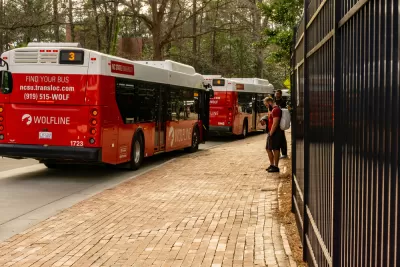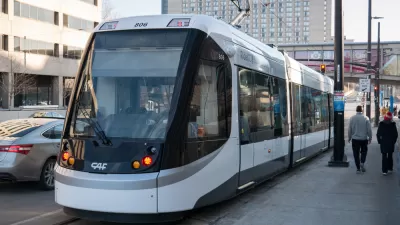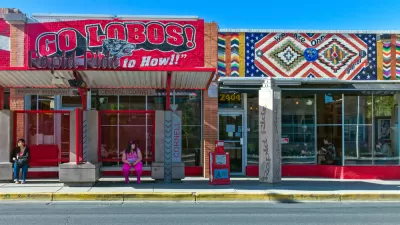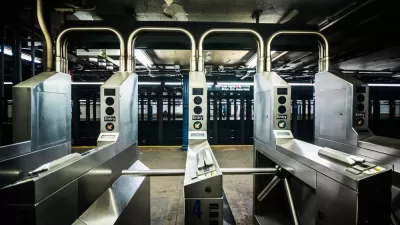The pandemic has provided a proving ground for fare-free transit in cities all over the country. For some cities, it might make fiscal sense for these experiments to be made permanent.

Jake Blumgart reports from Raleigh, North Carolina, where the Covid-19 pandemic has helped advocates for fare-free transit win some political victories for their cause.
The article starts with the example of David Meeker, who before the pandemic estimated that it could take four or five years to pull off a fare-free transit campaign.
"But as COVID-19 swept over the country, the City Council acted quickly to scrap payments for bus riders. That would allow all-door boarding — minimizing interaction with the driver — and it would be a boon for beleaguered essential workers who still had to report to work," explains Blumgart. "In 2021, the City Council has extended the pandemic-era fare-free norm for another budget year. For Meeker and his allies, both in and out of government, this feels like the moment to lock in this policy change."
According to Blumgart, the fare-free proposition is different in a city like Raleigh, where 2 million people rode transit in 2019, than it would be in, for example, New York City or Washington, D.C. "[I]n 2019, the cost of running Raleigh’s bus network was over $31 million with fare revenues only coming to $3.4 million. When the amount spent on collecting that revenue is considered — paying people to collect and move large amounts of physical money — the actual amount is even less," explains Blumgart.
FULL STORY: Raleigh Pushes for Permanent Fare-Free Transit

Alabama: Trump Terminates Settlements for Black Communities Harmed By Raw Sewage
Trump deemed the landmark civil rights agreement “illegal DEI and environmental justice policy.”

Planetizen Federal Action Tracker
A weekly monitor of how Trump’s orders and actions are impacting planners and planning in America.

The 120 Year Old Tiny Home Villages That Sheltered San Francisco’s Earthquake Refugees
More than a century ago, San Francisco mobilized to house thousands of residents displaced by the 1906 earthquake. Could their strategy offer a model for the present?

BLM To Rescind Public Lands Rule
The change will downgrade conservation, once again putting federal land at risk for mining and other extractive uses.

Indy Neighborhood Group Builds Temporary Multi-Use Path
Community members, aided in part by funding from the city, repurposed a vehicle lane to create a protected bike and pedestrian path for the summer season.

Congestion Pricing Drops Holland Tunnel Delays by 65 Percent
New York City’s contentious tolling program has yielded improved traffic and roughly $100 million in revenue for the MTA.
Urban Design for Planners 1: Software Tools
This six-course series explores essential urban design concepts using open source software and equips planners with the tools they need to participate fully in the urban design process.
Planning for Universal Design
Learn the tools for implementing Universal Design in planning regulations.
Clanton & Associates, Inc.
Jessamine County Fiscal Court
Institute for Housing and Urban Development Studies (IHS)
City of Grandview
Harvard GSD Executive Education
Toledo-Lucas County Plan Commissions
Salt Lake City
NYU Wagner Graduate School of Public Service





























